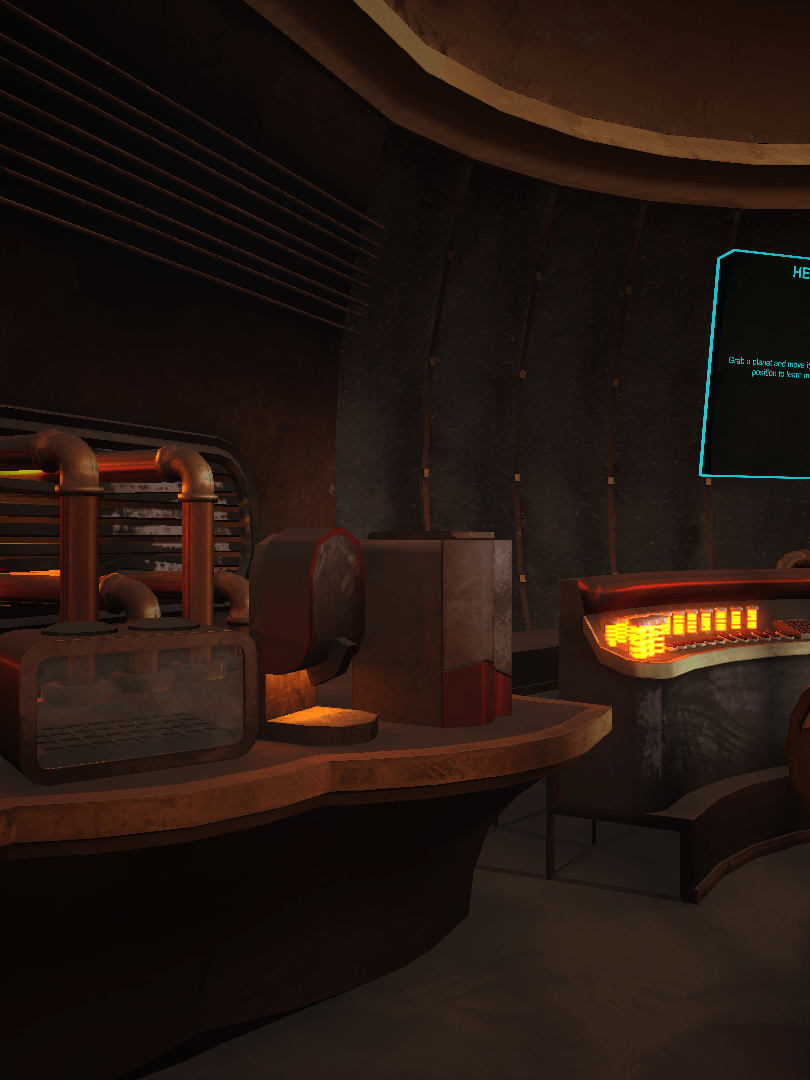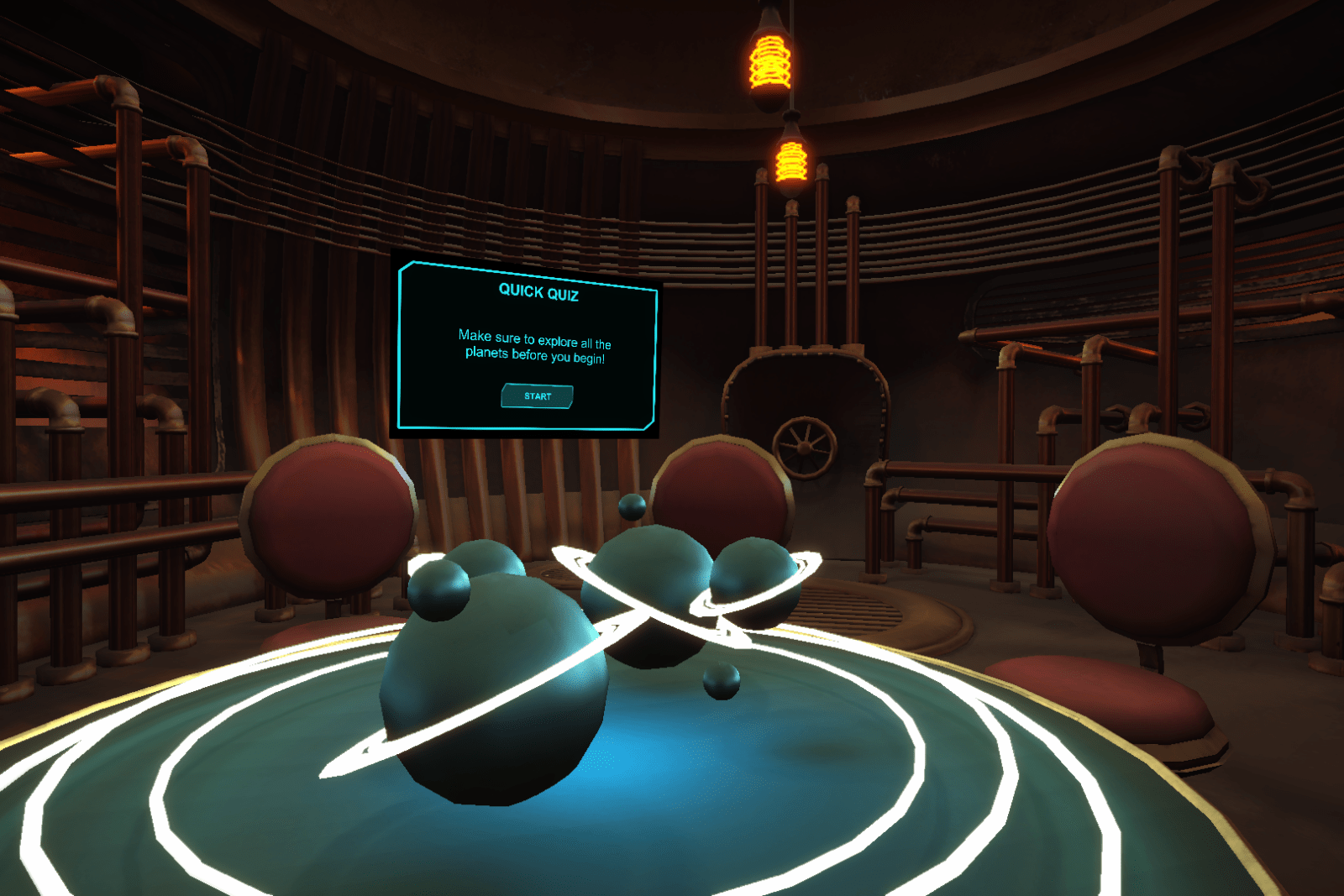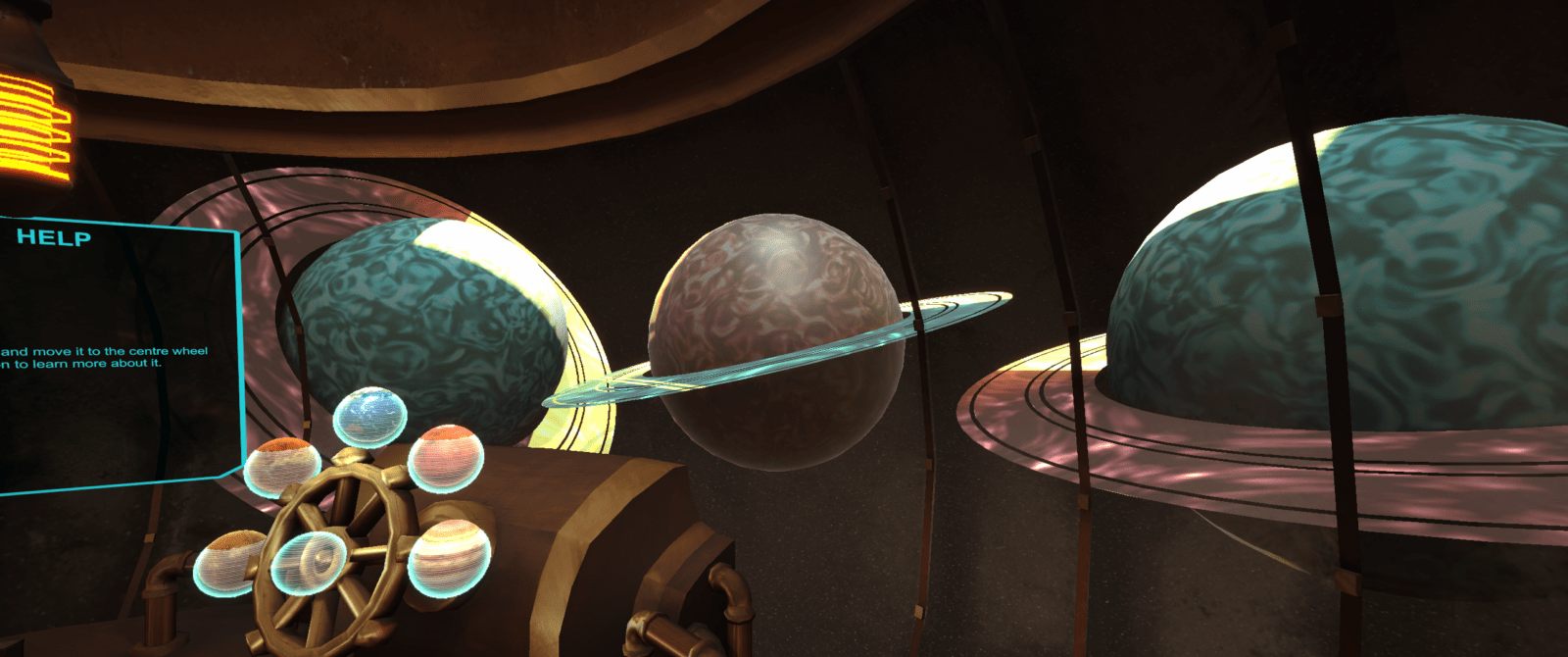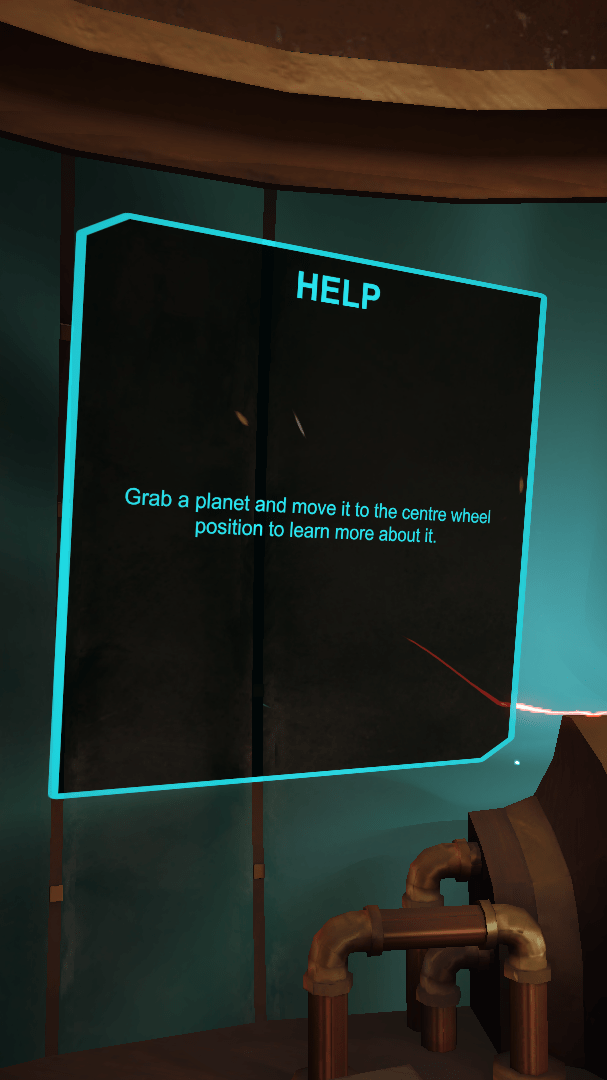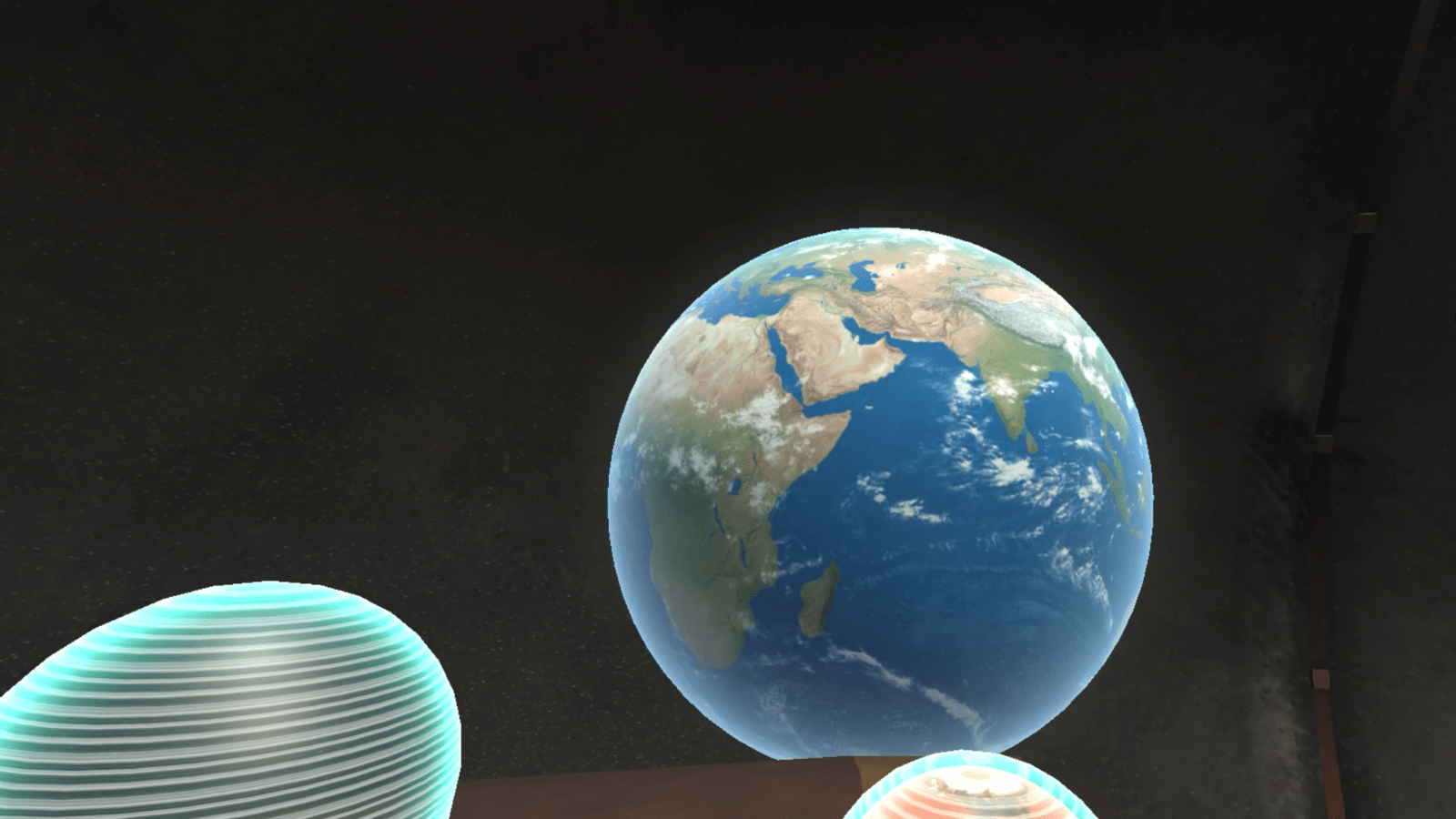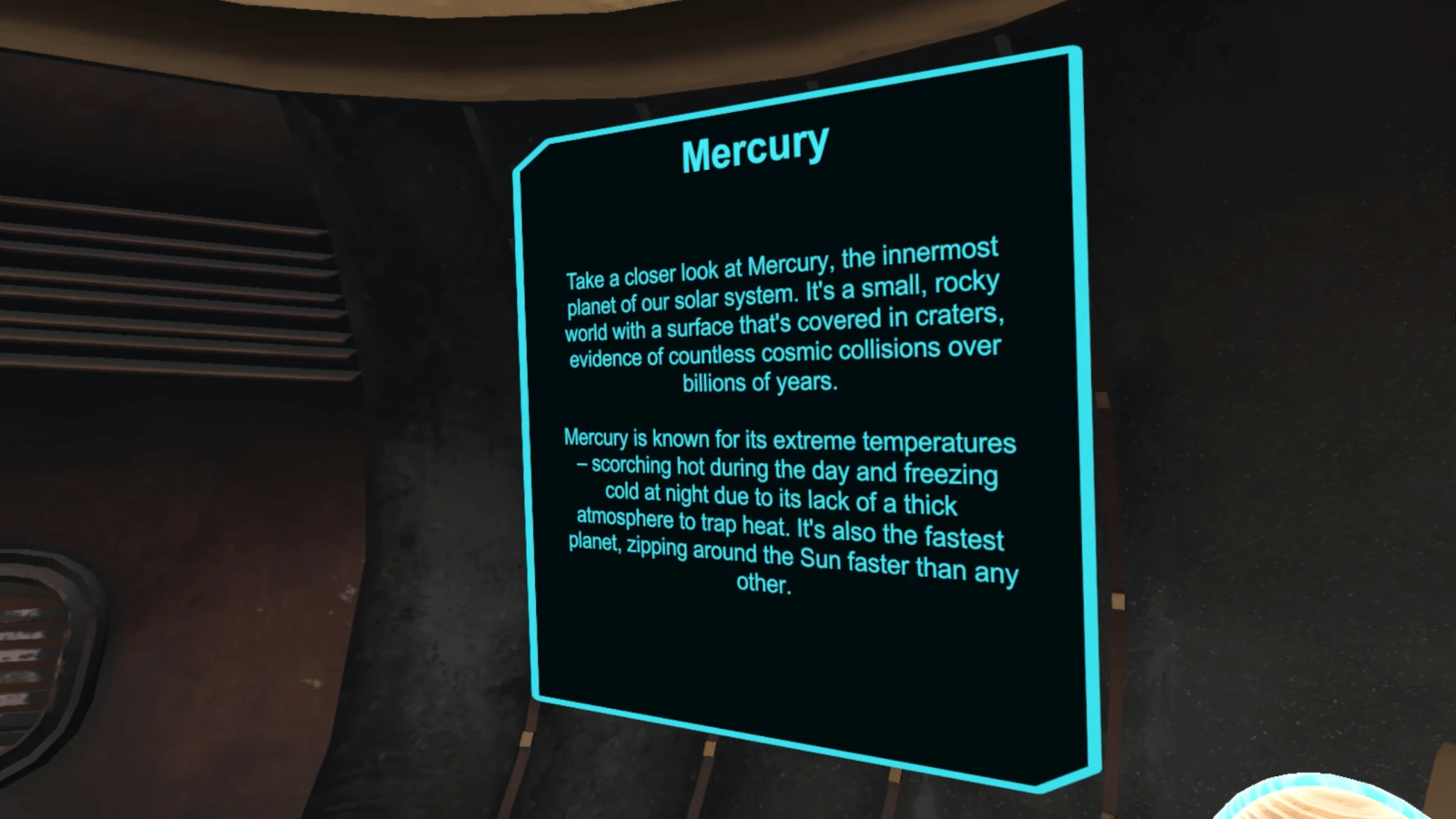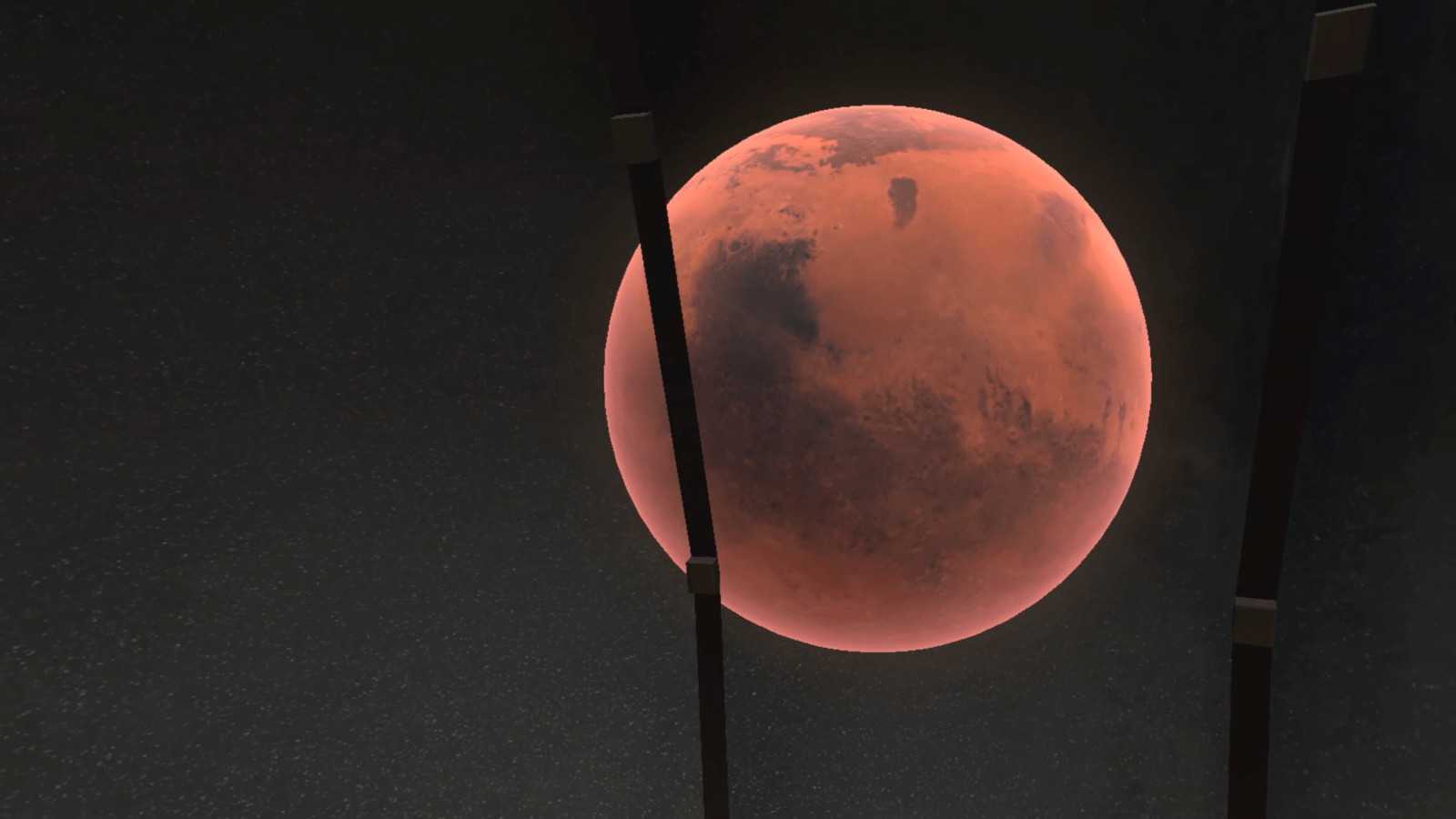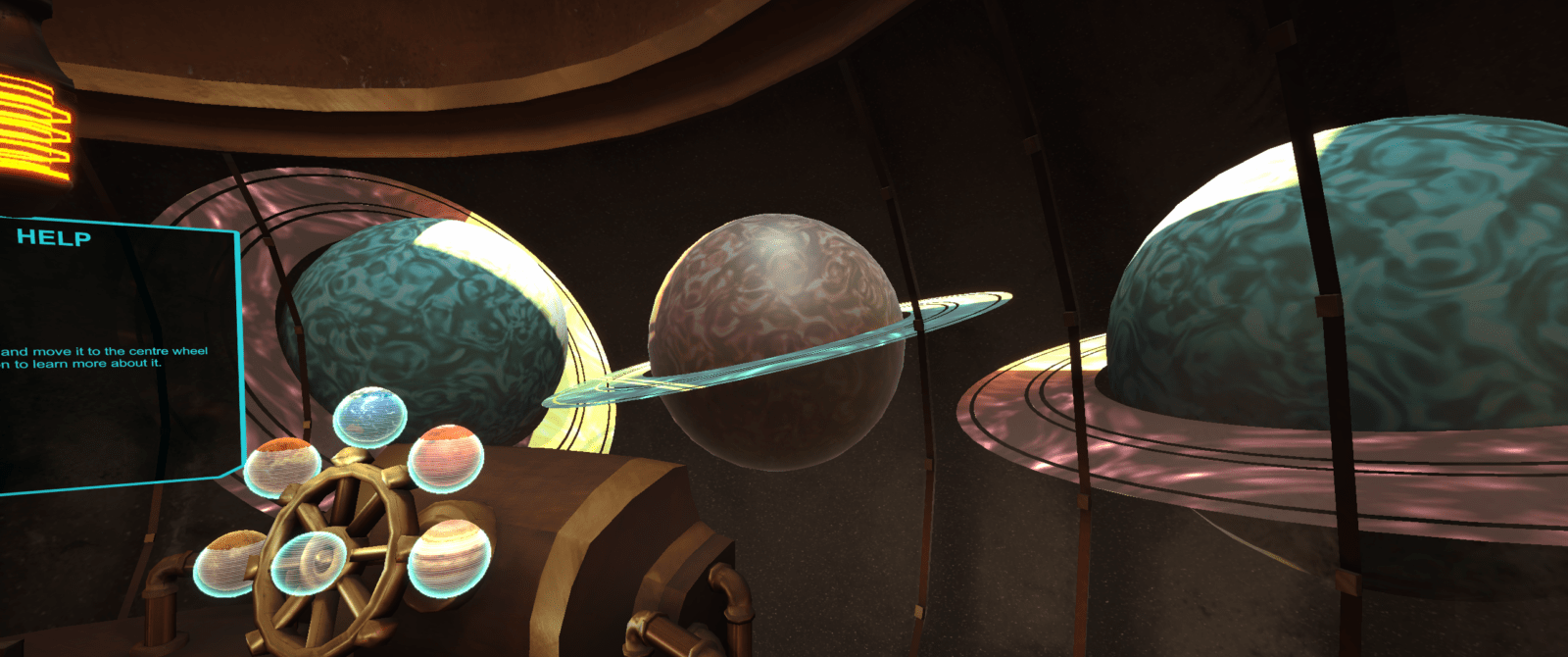Educational VR Experience
A space themed educational game for children
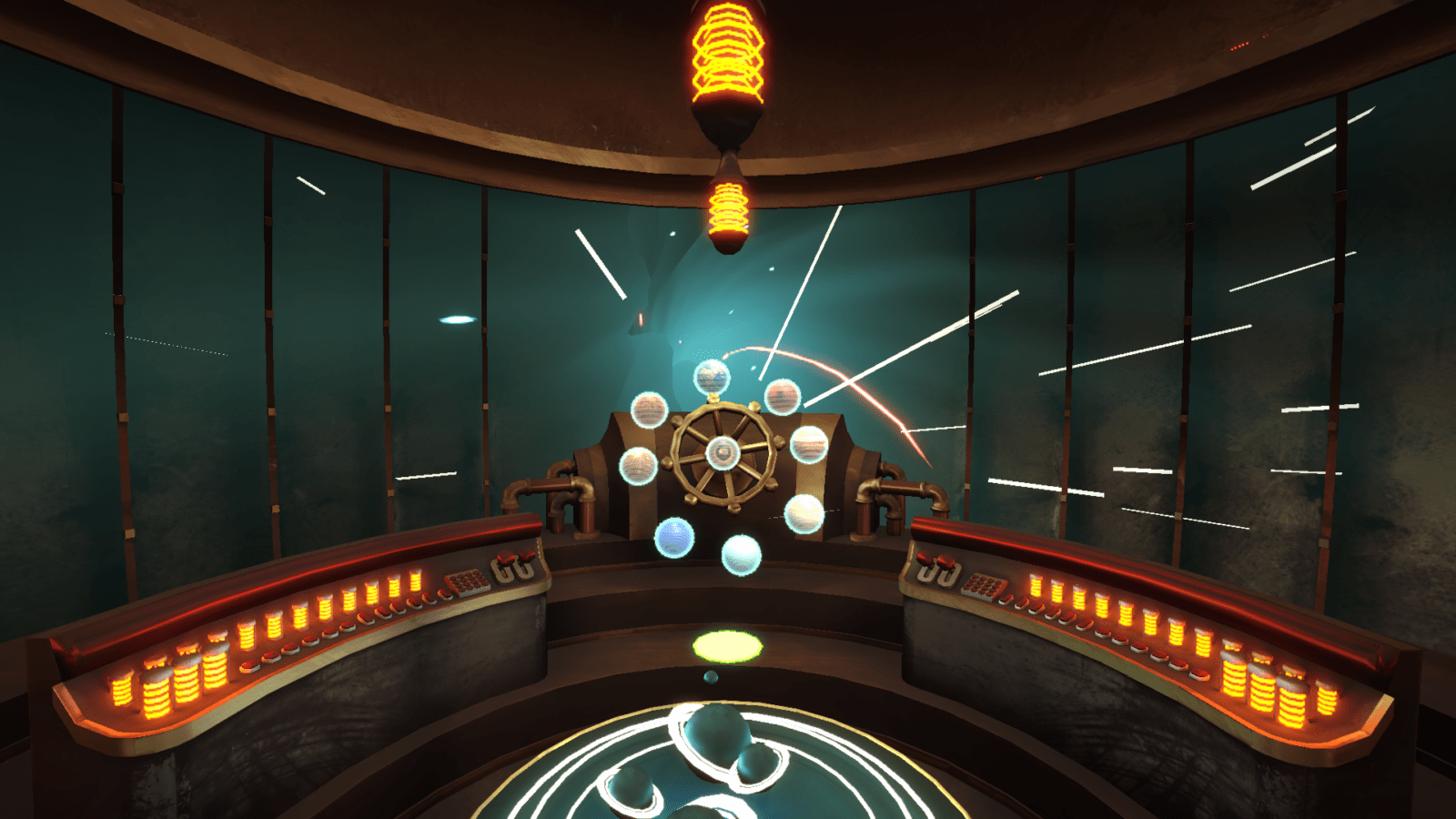
Key Features
- Interactive learning about planets in our solar system
- Immersive VR experience for children aged 8-12
- Final quiz to test newly acquired knowledge
- Real-time cutscene using Unity's Timeline and Shader Graph
Technology Used
- C#
- Unity
- Unity XR Interaction Toolkit
- Shader Graph
Development & Features
This project, designed for 8-12 year-olds, was developed as a solo project over a weekend. It incorporates the observer design pattern, utilising Unity events to manage the movement of planet game objects across various sockets and to trigger various facts (visually and audibly) as well as the warp cutscene, as depicted in the accompanying video.
While I aimed to make the manipulation of planets intuitive and minimise the use of UI for the younger audience in VR, a world space UI was required for the quiz. Finding a balance between good accessibility and following well-known design heuristics while staying within the sci-fi theming of the space ship was a fun challenge for the UI.

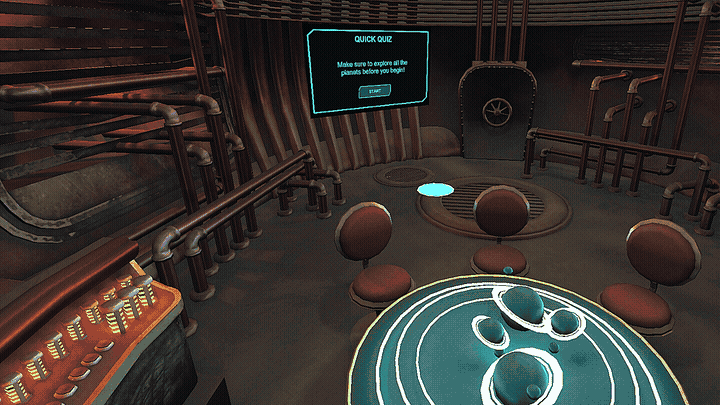
Moreover, this project served as an opportunity to delve into Unity's shader graph. The real-time cutscene is orchestrated using Unity's Timeline tool, featuring a primitive cone manipulated by a vertex shader crafted in shader graph. Additional enhancements, such as particle effects and sounds, are seamlessly integrated into the timeline, enhancing the immersive experience of space warp simulation.
This experience highlighted the potential of VR as a transformative tool for educational engagement, offering immersive and interactive experiences that can greatly enhance learning outcomes.
Video
Gallery
